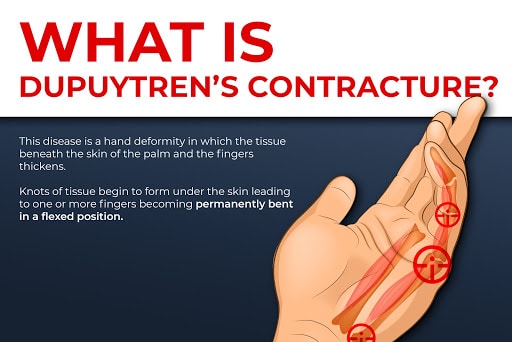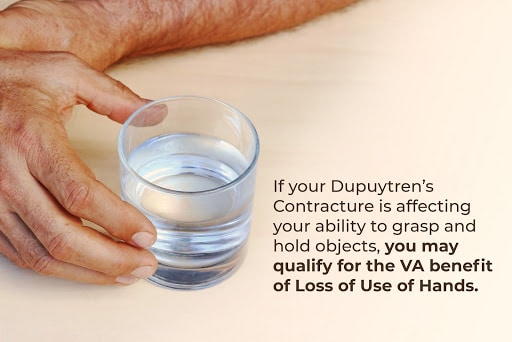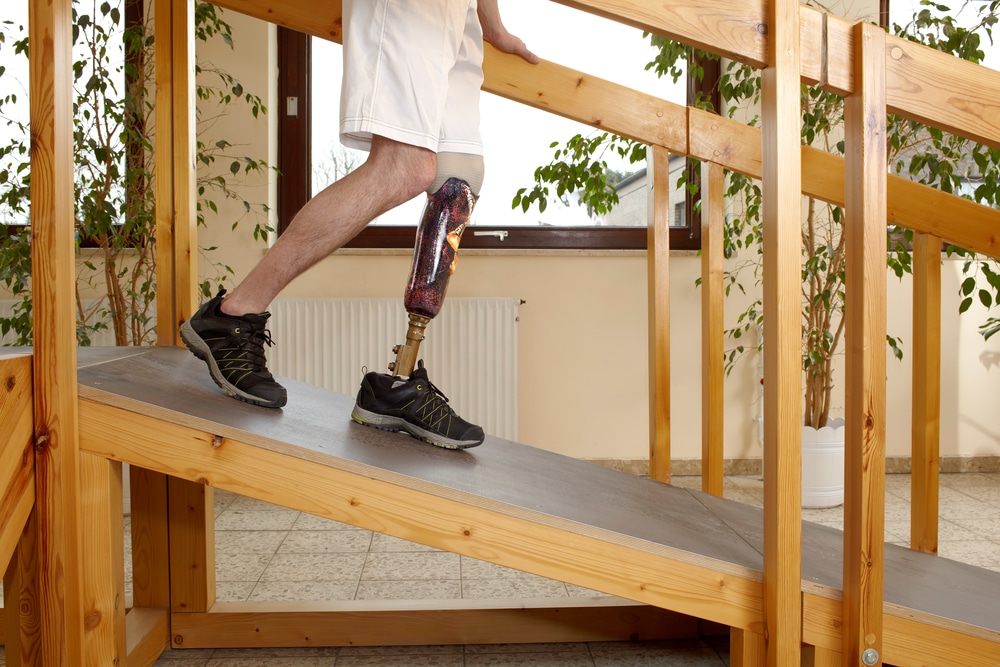What Is Dupuytren’s Contracture?
Dupuytren’s Contracture is a condition in which the tissue beneath the skin of the palm of the hand and the fingers thickens. Knots of tissue begins to form under the skin leading to one or more fingers becoming permanently bent in a flexed position. The disease most often appears on the ring finger and little finger, but it can also affect the index finger and others. The beginning of Dupuytren’s Contracture typically feels like small, hard nodules under the skin of the palm; it then worsens to the point of fingers no longer being able to be straightened.
Your doctor can usually diagnose this condition based on the look and feel of your hands. The doctor may also see if you can lay your hand flat on a tabletop or other flat surface. Not being able to fully flatten your fingers indicates that you have Dupuytren’s Contracture. The appearance of thick or dimpled skin on the palm is among the other symptoms of Dupuytren. Dupuytren Contracture in feet can occur, but it’s not common.
Risk Factors For Dupuytren’s Contracture
While the specific causes of Dupuytren’s Contracture aren’t known, there are a number of risk factors related to this condition. Age is one of the most common risk factors, as this condition most often occurs in individuals over the age of 50. It’s also more common in men. Family history can also put you at higher risk for developing this deformity, as can Northern European ancestry.
Other risk factors include lifestyle factors like tobacco and alcohol use. Individuals with diabetes may also be more prone to developing this condition, which may connect to your veteran’s disability claim.
Treatment For Dupuytren’s Contracture
The thick cords associated with Dupuytren’s Contracture can impair hand function, so it’s important to speak with a doctor about treatment options. Some patients will show improvement with enzyme or steroid injections. Enzyme injections, which are performed with local anesthesia, can dissolve some of the thickened tissue, while steroid injections may prevent the condition from worsening. Specialists may also inject medication into the affected area with needle aponeurotomy.
While the above non-surgical treatments for Dupuytren’s Contracture treatments can be effective for some patients, hand surgery is a common treatment for this condition. This is especially true when treating severe cases. A hand surgeon can remove the thickened tissue through surgery, allowing for more mobility in the hand and fingers. This thickened tissue is called palmar fascia, so this procedure is called a fasciectomy. Your hand surgeon may recommend splinting for Dupuytren’s Contracture following surgery.
According to the VA, there are some potential side effects for this type of hand surgery. These include:
- Thick scar tissue on the palm
- Stiff fingers
- Numbness
- Swelling around the joints
- Impaired blood flow to the hand
- Infection
- Long-term hand pain or stiffness
Be sure to talk to your doctor if you’re concerned about any side effects. Keep in mind that some patients will require multiple hand surgeries throughout their lives to preserve mobility. Physical therapy may also be helpful for targeting the affected fingers through Dupuytren Contracture exercises.
Trigger Finger vs Dupuytren Contracture
It’s important to note that some individuals may get trigger finger mixed up with Dupuytren’s Contracture. However, these conditions are different. Trigger finger involves the swelling of the tendons and connective tissue in the hand, while tissue in the hand actually thickens in Dupuytren’s Contracture. Both conditions lead to stiffening of the fingers and hands, but your doctor will be able to spot the difference.
How Is Dupuytren Contracture Related to my Diabetes Claim?
Although many doctors are still unsure of the exact cause of Dupuytren’s Contracture, they have identified many different associations. As mentioned above, some of these associations include heredity, ancestry, gender, age, and diabetes. Therefore, if you are receiving service-connected compensation for your diabetes, it is worth filing a claim for Dupuytren’s Contracture secondary to that condition if you have a diagnosis.
Current research has noted the increasing frequency of Dupuytren’s Contracture in patients with Diabetes. Although the link between the two is unclear, there are studies that show a connection between the two diseases. About 5% of individuals with Dupuytren’s Disease are diabetic, and it has been shown that the longer someone has diabetes, the more likely they are to develop Dupuytren’s Contracture. Additionally, patients with diabetes, both Type 1 and Type 2, have 5–10 times greater risk to develop the condition.
When providing evidence for your claim, it would be beneficial to have a doctor provide a report or statement linking the Dupuytren’s Contracture to diabetes. Because there is no presumption that this disease is caused by diabetes, a medical professional would be able to provide a credible nexus between the two. Remember, the VA requires that your claim is “at least as likely as not” related to service or a service-connected disability. Therefore, although other factors may play a role in the development of Dupuytren’s Contracture, your doctor must be able to prove that your Dupuytren’s Contracture is at least as likely as not due to your diagnosis of diabetes, and provide supporting medical research if possible.
Qualifying For Benefits For Loss of Use of Hands
Some people with this condition may not even be able to hold large objects. If you notice that your Dupuytren’s Contracture is affecting your ability to grasp and hold onto objects, you may also qualify for the VA benefit of Loss of Use of Hands. The VA’s benefit for Loss of Use of Hands is granted in the form of Special Monthly Compensation (SMC). SMC is a monthly benefit for veterans who have a severe impairment due to service-connected conditions, in this case, the inability to use one’s hands. For more information on this benefit, click here, Top 3 Questions on Benefits for Loss of Use of Hands.
If you have Dupuytren’s Contracture and your claim has been denied, the attorneys at Hill & Ponton are available to help. Contact us today for a free case evaluation.






